Intro
Discover metoprolol uses, a beta-blocker treating high blood pressure, angina, heart failure, and arrhythmias, with benefits including lowered cardiovascular risk and improved heart health management.
Metoprolol is a medication that has been widely used for decades to treat various cardiovascular conditions. It belongs to a class of drugs known as beta-blockers, which work by blocking the effects of the hormone epinephrine, also known as adrenaline, and reducing the heart's workload. The importance of metoprolol lies in its ability to manage conditions such as high blood pressure, chest pain, and certain heart-related issues, making it a crucial medication for many individuals.
The use of metoprolol has been extensive due to its effectiveness in reducing the risk of heart attacks, strokes, and other cardiovascular events. By lowering blood pressure and heart rate, metoprolol helps to decrease the strain on the heart, allowing it to function more efficiently. This, in turn, can improve overall health and reduce the risk of complications associated with cardiovascular disease. As a result, metoprolol has become a commonly prescribed medication for individuals with cardiovascular conditions, and its benefits have been well-documented in medical literature.
The mechanism of action of metoprolol is complex, involving the blockade of beta-1 receptors in the heart, which reduces the effects of epinephrine and decreases heart rate and blood pressure. This action also helps to reduce the heart's oxygen demand, making it an effective treatment for conditions such as angina pectoris. Furthermore, metoprolol has been shown to be effective in reducing the risk of death and reinfarction in patients who have had a heart attack, making it a vital component of post-myocardial infarction care.
What is Metoprolol Used For
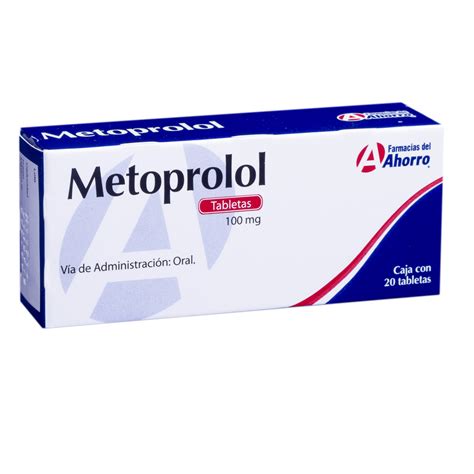
Metoprolol is used to treat a variety of conditions, including high blood pressure, chest pain, and heart failure. It is also used to improve survival after a heart attack and to reduce the risk of death and reinfarction. In addition, metoprolol is used to treat conditions such as atrial fibrillation, supraventricular tachycardia, and hypertrophic cardiomyopathy. The medication is available in various forms, including tablets, capsules, and injectables, making it easily accessible for patients with different needs.
Benefits of Metoprolol
The benefits of metoprolol are numerous, and its use has been associated with improved outcomes in patients with cardiovascular disease. Some of the key benefits of metoprolol include: * Reduced risk of heart attack and stroke * Lowered blood pressure and heart rate * Improved survival after a heart attack * Reduced risk of reinfarction * Improved symptoms of angina pectoris * Reduced risk of atrial fibrillation and supraventricular tachycardiaHow Metoprolol Works
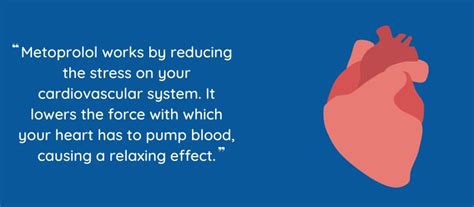
Metoprolol works by blocking the effects of epinephrine on the heart, which reduces heart rate and blood pressure. This action also helps to reduce the heart's oxygen demand, making it an effective treatment for conditions such as angina pectoris. The medication is selective for beta-1 receptors, which are primarily found in the heart, making it a safe and effective treatment for cardiovascular conditions.
Side Effects of Metoprolol
While metoprolol is generally well-tolerated, it can cause side effects in some individuals. Some common side effects of metoprolol include: * Dizziness and lightheadedness * Fatigue and weakness * Shortness of breath * Slow heart rate * Cold hands and feet * Nausea and vomiting * Diarrhea and constipationMetoprolol Dosage
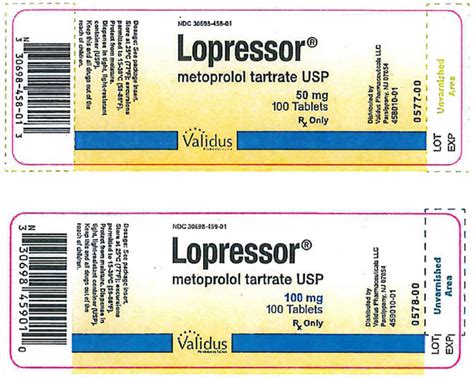
The dosage of metoprolol varies depending on the condition being treated and the individual patient's needs. The typical dosage range for metoprolol is between 50-200mg per day, taken in divided doses. It is essential to follow the prescribed dosage and not to exceed the recommended dose, as this can increase the risk of side effects.
Interactions with Other Medications
Metoprolol can interact with other medications, including: * Calcium channel blockers * Digitalis * Clonidine * Monoamine oxidase inhibitors * Tricyclic antidepressants * Antiarrhythmic medicationsIt is essential to inform your healthcare provider about all medications you are taking, including over-the-counter medications and supplements, to minimize the risk of interactions.
Metoprolol and Pregnancy

Metoprolol is generally considered safe to use during pregnancy, but it should only be used under the close supervision of a healthcare provider. The medication has been shown to cross the placenta, and its use during pregnancy has been associated with a small increased risk of fetal growth restriction and neonatal bradycardia.
Metoprolol and Breastfeeding
Metoprolol is excreted in breast milk, and its use during breastfeeding has been associated with a small increased risk of neonatal bradycardia and hypotension. However, the benefits of metoprolol may outweigh the risks, and its use during breastfeeding should be decided on a case-by-case basis.Metoprolol and Exercise
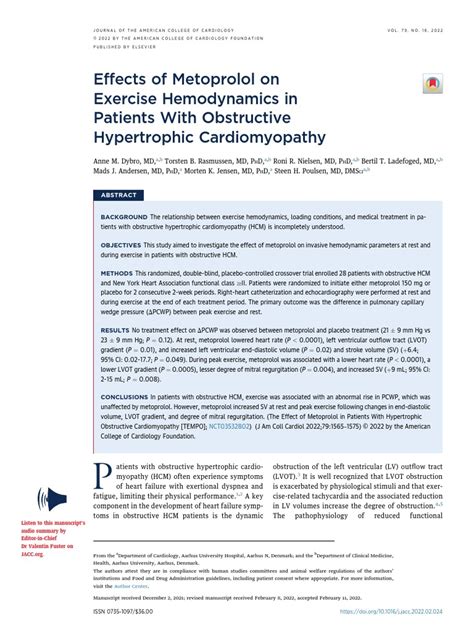
Metoprolol can affect exercise performance, as it reduces heart rate and blood pressure. However, this does not necessarily mean that individuals taking metoprolol should avoid exercise. In fact, regular exercise can help to improve overall health and reduce the risk of cardiovascular disease.
Metoprolol and Diet
There are no specific dietary restrictions for individuals taking metoprolol, but a healthy diet can help to improve overall health and reduce the risk of cardiovascular disease. A diet rich in fruits, vegetables, whole grains, and lean protein sources can help to lower blood pressure and cholesterol levels, reducing the risk of cardiovascular events.Metoprolol and Stress
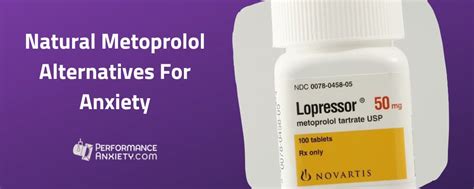
Metoprolol can help to reduce stress and anxiety by lowering blood pressure and heart rate. However, it is essential to manage stress through lifestyle modifications, such as regular exercise, healthy eating, and relaxation techniques, in addition to medication.
Metoprolol and Sleep
Metoprolol can affect sleep quality, as it can cause drowsiness and fatigue. However, this is typically a temporary side effect, and sleep quality often improves as the body adjusts to the medication.Metoprolol and Travel

Individuals taking metoprolol should take their medication as prescribed, even when traveling. It is essential to pack enough medication for the duration of the trip and to keep it in its original packaging to avoid any issues with customs or security.
Metoprolol and Emergency Situations
In the event of an emergency, individuals taking metoprolol should seek medical attention immediately. It is essential to inform emergency responders about the medication, as it can affect treatment decisions.What is metoprolol used for?
+Metoprolol is used to treat high blood pressure, chest pain, and heart failure. It is also used to improve survival after a heart attack and to reduce the risk of death and reinfarction.
How does metoprolol work?
+Metoprolol works by blocking the effects of epinephrine on the heart, which reduces heart rate and blood pressure. This action also helps to reduce the heart's oxygen demand, making it an effective treatment for conditions such as angina pectoris.
What are the side effects of metoprolol?
+Common side effects of metoprolol include dizziness and lightheadedness, fatigue and weakness, shortness of breath, slow heart rate, cold hands and feet, nausea and vomiting, and diarrhea and constipation.
Can I take metoprolol during pregnancy?
+Metoprolol is generally considered safe to use during pregnancy, but it should only be used under the close supervision of a healthcare provider. The medication has been shown to cross the placenta, and its use during pregnancy has been associated with a small increased risk of fetal growth restriction and neonatal bradycardia.
Can I take metoprolol while breastfeeding?
+Metoprolol is excreted in breast milk, and its use during breastfeeding has been associated with a small increased risk of neonatal bradycardia and hypotension. However, the benefits of metoprolol may outweigh the risks, and its use during breastfeeding should be decided on a case-by-case basis.
In summary, metoprolol is a widely used medication for the treatment of various cardiovascular conditions. Its benefits include reduced risk of heart attack and stroke, lowered blood pressure and heart rate, and improved survival after a heart attack. While metoprolol can cause side effects, it is generally well-tolerated, and its use can be managed through lifestyle modifications and regular monitoring. If you have any questions or concerns about metoprolol, we encourage you to comment below or share this article with others who may benefit from this information. Additionally, we invite you to explore our website for more information on cardiovascular health and wellness. By working together, we can improve our understanding of metoprolol and its role in maintaining a healthy heart.
